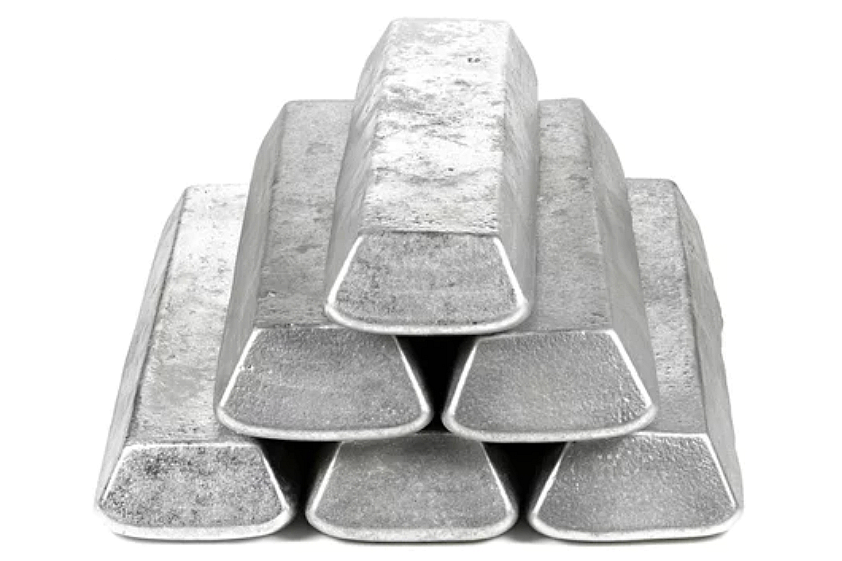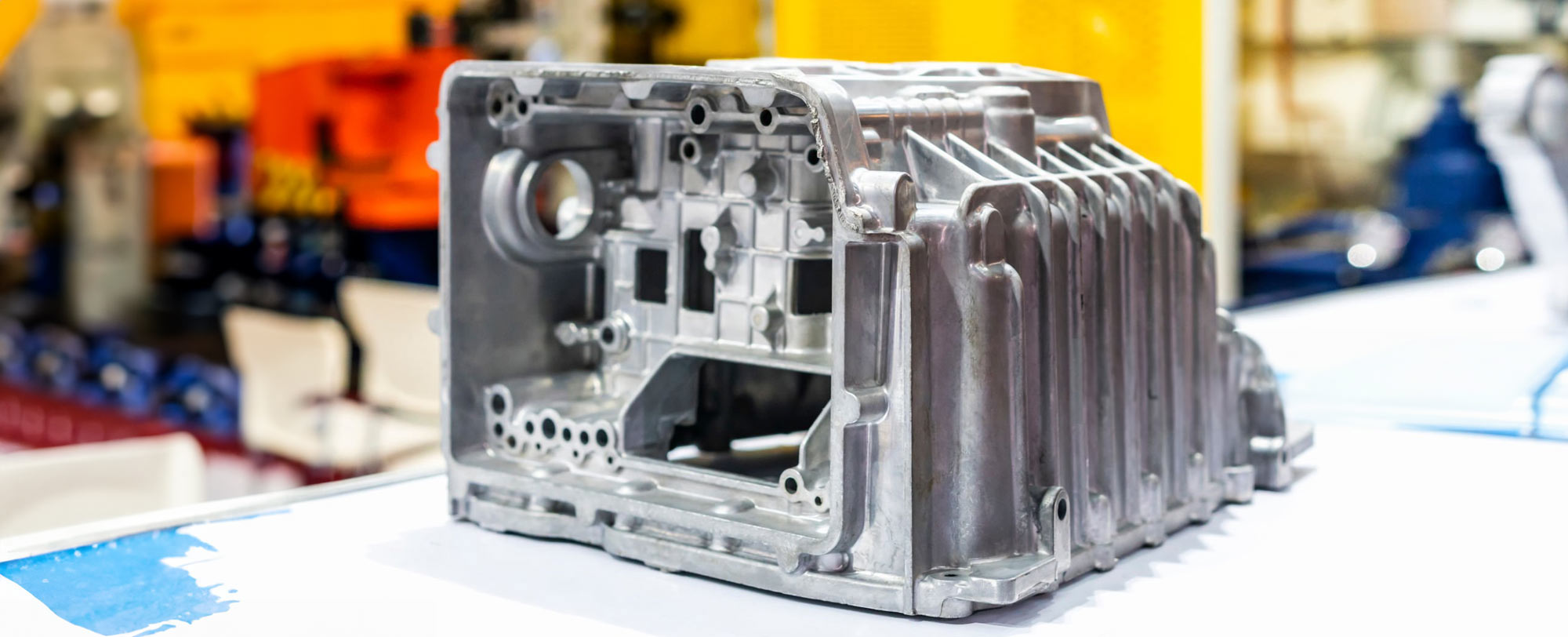Exploring how an Aluminum Foundry delivers cost-effective results
Wiki Article
Just How Light Weight Aluminum Foundries Contribute to Various Industries: A Thorough Review
Light weight aluminum factories act as essential distributors throughout numerous industries, consisting of automobile, aerospace, building and construction, and electronic devices. They produce elements that are not just lightweight but likewise long lasting, boosting the efficiency of various products. With sophisticated casting strategies and a commitment to sustainability, these shops are adapting to satisfy progressing industry demands. As they introduce, the impact of light weight aluminum spreadings on different applications elevates important inquiries concerning the future of manufacturing. What exists in advance for this important industry?The Role of Light Weight Aluminum Foundries in the Automotive Market
As the automotive market increasingly welcomes lightweight products to improve fuel efficiency and efficiency, light weight aluminum factories play a crucial function in this evolution. These centers focus on the manufacturing of aluminum spreadings, which are crucial components in modern-day lorries. By supplying high-strength, light-weight parts, aluminum shops allow suppliers to reduce the total weight of automobiles, inevitably bring about boosted gas economy and decreased emissions.Light weight aluminum's resistance to corrosion even more enhances lorry long life, making it an attractive selection for automakers. Shops utilize innovative techniques such as die casting and sand casting to create intricate and accurate elements, making certain that they meet strict industry criteria. In addition, the capability to reuse light weight aluminum efficiently adds to a much more lasting production process. As the vehicle field remains to introduce, light weight aluminum foundries will remain essential in supplying the materials required for the next generation of cars, sustaining both efficiency and ecological goals.

Aerospace Applications of Light Weight Aluminum Castings
Aluminum castings are important to the aerospace market, offering a combination of light-weight stamina and longevity that is essential for airplane performance. These spreadings are used in different parts, such as engine components, structural frames, and landing gear, where weight reduction is essential for gas effectiveness and total security. The flexibility of aluminum enables for complex geometries that improve aerodynamic efficiency while maintaining architectural stability.In addition, innovations in casting innovations have improved the precision and surface area coating of aluminum elements, lowering the need for substantial post-processing. This efficiency not only increases production timelines however additionally reduces expenses, making aluminum an attractive option for suppliers. The corrosion resistance of light weight aluminum guarantees long life and dependability in extreme operating environments, additionally developing its function in aerospace applications. As the industry evolves, aluminum castings remain to be an essential material, driving advancement and sustaining the advancement of next-generation aircraft.
Building And Construction Industry Developments Through Aluminum
The construction sector has progressively adopted aluminum because of its light-weight properties and versatility, paralleling its successful applications in aerospace. Innovations in light weight aluminum layout have actually resulted in more powerful, more efficient frameworks, enabling building contractors and designers to explore new possibilities. The product's resistance to deterioration and reduced maintenance needs make it particularly appealing for both residential and business projects.Light weight aluminum's convenience assists in the development of elaborate layouts, enabling for visual enhancements that were formerly tough with conventional products. Prefabrication techniques have actually additionally evolved, making use of aluminum to lower construction time and prices considerably. Furthermore, the power performance of light weight aluminum systems-- such as home window frames and roof-- adds to lasting structure methods, lining up with modern ecological criteria. As the construction industry continues to accept these improvements, aluminum's function is expected to expand, driving more development and adding official website to the growth of resistant facilities.
Electronics and the Demand for Lightweight Light Weight Aluminum Components
With the rapid development of modern technology, the demand for light-weight light weight aluminum components in the electronics market has actually surged. As gadgets come to be more compact and portable, producers seek materials that provide both toughness and weight decrease. Light weight aluminum, with its exceptional strength-to-weight proportion, has actually become a recommended selection for parts such as casings, heat sinks, and architectural assistances.Making use of light weight aluminum not just boosts product performance however additionally adds to energy performance, as lighter tools call for much less power during operation. In addition, aluminum's outstanding conductivity makes it perfect for electronic applications, guaranteeing efficient warm dissipation and decreasing the danger of overheating.
As consumer choices shift towards smooth and lightweight gizmos, light weight aluminum factories play a vital role in fulfilling the developing demands of the electronic devices sector (Aluminum Foundry). Their ability to produce specific and premium aluminum elements sustains advancement, making it possible for makers to push the boundaries of style and functionality
Lasting Practices in Light Weight Aluminum Foundries
As the electronics sector progressively focuses on sustainability, aluminum factories are adjusting their methods to line up with these environmental goals. Several shops are executing reusing programs that redeem light weight aluminum scrap, substantially reducing the need for basic materials and lessening waste. By using energy-efficient technologies, these facilities are lowering their carbon footprint; as an example, employing electric furnaces as opposed to traditional gas-fired ones can lead to considerable energy financial savings.In addition, aluminum foundries are buying water conservation actions, such as closed-loop systems that recycle water utilized in cooling down processes. These practices not just lower water consumption yet also mitigate the environmental impact connected with wastewater discharge. Many factories are checking out eco-friendly power resources, such as solar and wind power, to satisfy their energy needs sustainably. Through these campaigns, light weight aluminum foundries exemplify a dedication to environmental stewardship while remaining to meet the needs of the electronics industry.
Future Patterns in Light Weight Aluminum Shop Technologies
Arising technologies are positioned to transform aluminum factories, enhancing official source performance and item top quality while progressing sustainability initiatives. Technologies such as fabricated knowledge and artificial intelligence are anticipated to enhance production procedures by predicting equipment failings and boosting source allocation. The integration of advanced robotics will certainly streamline procedures, minimizing labor prices and minimizing human error.Additive manufacturing, or 3D printing, is additionally acquiring grip, allowing the production of complicated geometries that were formerly unattainable with traditional approaches. This shift can bring about considerable material savings and lowered waste. In addition, clever factories making use of IoT (Net of Points) innovations will certainly enable real-time monitoring and information evaluation, fostering aggressive decision-making.
Last but not least, the fostering of cleaner melting modern technologies and recycling techniques will better decrease the environmental footprint of light weight aluminum shops, making them more lasting. Collectively, these patterns indicate a future where light weight aluminum shops can operate with higher efficiency and responsibility.
Regularly Asked Questions
What Are the Ecological Influences of Aluminum Foundries?

Just How Do Foundries Make Certain Quality Control in Aluminum Casting?
Foundries assure high quality control in light weight aluminum spreading by implementing extensive inspection procedures, utilizing advanced technology, performing regular material testing, and sticking to industry requirements, thereby preserving uniformity and integrity in their ended up products. Precision aluminum casting.What Is the Typical Lifespan of Aluminum Cast Components?
The typical life expectancy of light weight aluminum actors parts generally ranges from 10 to half a century, depending upon aspects such you can try this out as ecological problems, use, and upkeep. Correct care can greatly improve their longevity and efficiency in time.Exactly How Are Light Weight Aluminum Alloys Selected for Details Applications?
Aluminum alloys are selected based on aspects such as toughness, rust resistance, weight, and thermal conductivity. Engineers evaluate the specific needs of applications to figure out the most suitable alloy for finest performance and longevity.What Are the Security Laws for Aluminum Factory Employees?
Safety policies for light weight aluminum factory employees include personal protective devices mandates, air flow needs, direct exposure limitations to dangerous materials, and protocols for managing liquified metal. Conformity warranties employee safety and minimizes health and wellness threats connected with factory procedures.As the automobile industry increasingly accepts light-weight products to enhance fuel effectiveness and efficiency, light weight aluminum shops play an important function in this evolution. As customer preferences change towards light-weight and smooth devices, aluminum factories play a crucial role in fulfilling the progressing demands of the electronic devices sector. As the electronics industry progressively prioritizes sustainability, light weight aluminum factories are adjusting their practices to straighten with these ecological goals. Many shops are implementing recycling programs that recover aluminum scrap, significantly minimizing the requirement for raw products and minimizing waste. Security guidelines for light weight aluminum foundry workers consist of personal safety tools requireds, ventilation needs, exposure restrictions to harmful products, and methods for handling liquified steel.
Report this wiki page